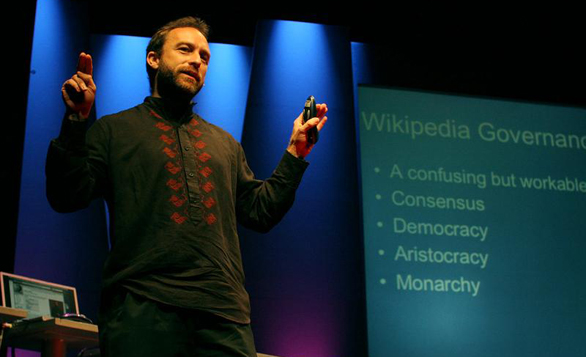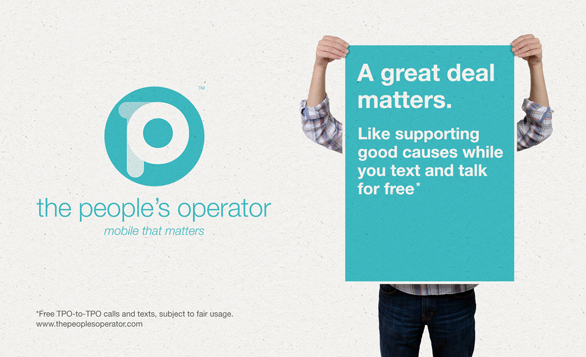
Jimmy Wales speaks in 2005 about the birth of Wikipedia.
Advertising for telephone companies is all around us. In the United States, AT&T commands us to “Rethink possible,” Verizon loves to ask “Can you hear me now?,” and T-Mobile calls for our attention with lots of hot pink. In Canada, it’s hard to escape ads for Rogers Wireless, Telus and Bell Wireless. And in the United Kingdon, Vodaphone and O2-UK are all around.
“You see telephone ads, billboards, they mail you things, they maintain storefronts—it’s everywhere and a tremendous amount of money is being spent on it,” says Jimmy Wales, the founder of Wikipedia.
Wales doesn’t say this because he’s writing a Wikipedia article on advertising. He says this because, in January, he announced that he would be joining The People’s Operator, a telephone company that doesn’t pour money into advertising and marketing. Instead, this service — which has been available in the U.K. since 2012 — focuses on creating a service so good that people talk about it to others.
Wales returned to the TED2014 stage today during All-Stars Session 5 to give us an update on a very cool Wikipedia initiative, bringing Wikipedia content to people across Africa free of data charges. He mentioned The People’s Operator, the company of which he is now co-chair, but only in passing. And we wanted to know more about this unusual phone company, and how the open-information technologist got involved.
Wales tells the TED Blog that he first heard about The People’s Operator from one of its founders, who happens to be a friend. When this friend explained the idea driving the business — that it wouldn’t advertise and would donate 10% of each customer’s bill to a cause of their choice — he got very excited.
“I get pitched a lot of things, and they’re usually business ideas with no vision or an inspiring vision with no workable idea. This was a big idea, but I could also see how the business model would work,” Wales says. “The model of giving 10% of each customer’s bill to a cause and offering the lowest rates—that’s pretty powerful.”
To be clear, The People’s Operator is a for-profit company. But it’s one more akin to TOMS and Warby Parker, seeking to improve lives while making money.
“The interesting thing about the new wave of businesses that work on a hybrid model is that people have a story they can believe in, something that they can tell their friends about. It’s a good business decision,” he says. “It’s a trend I think we’ll see more of. It’s a good shift.”
The key to building The People’s Operator: that people who use the service tell others about it, creating growth through positive word-of-mouth. And this is where Wales sees The People’s Operator as a philosophical cousin of Wikipedia rather than a left turn in his career.
“It’s the idea of uniting a lot of people for a cause—of bringing them together to spread something and make it big,” he says. “It depends on people telling other people.”
The People’s Operator aims to expand to the United States within a year—Wales says that they are currently in talks with partners there. Meanwhile, they are looking to expand into several other countries as well.
“We’d like to be global,” he says. “The thing about our world is that everyone talks on the internet. Talk is not confined to national borders. We want to be everywhere so that when someone hears about The People’s Operator, it’s an option for them.”

Jimmy Wales’ latest venture is The People’s Operator, a telephone company that doesn’t advertise and gives 10% of each customer’s bill to a cause of their choice.
Comments (3)
Pingback: » The Top 10 Wikipedia Stories of 2014 The Wikipedian